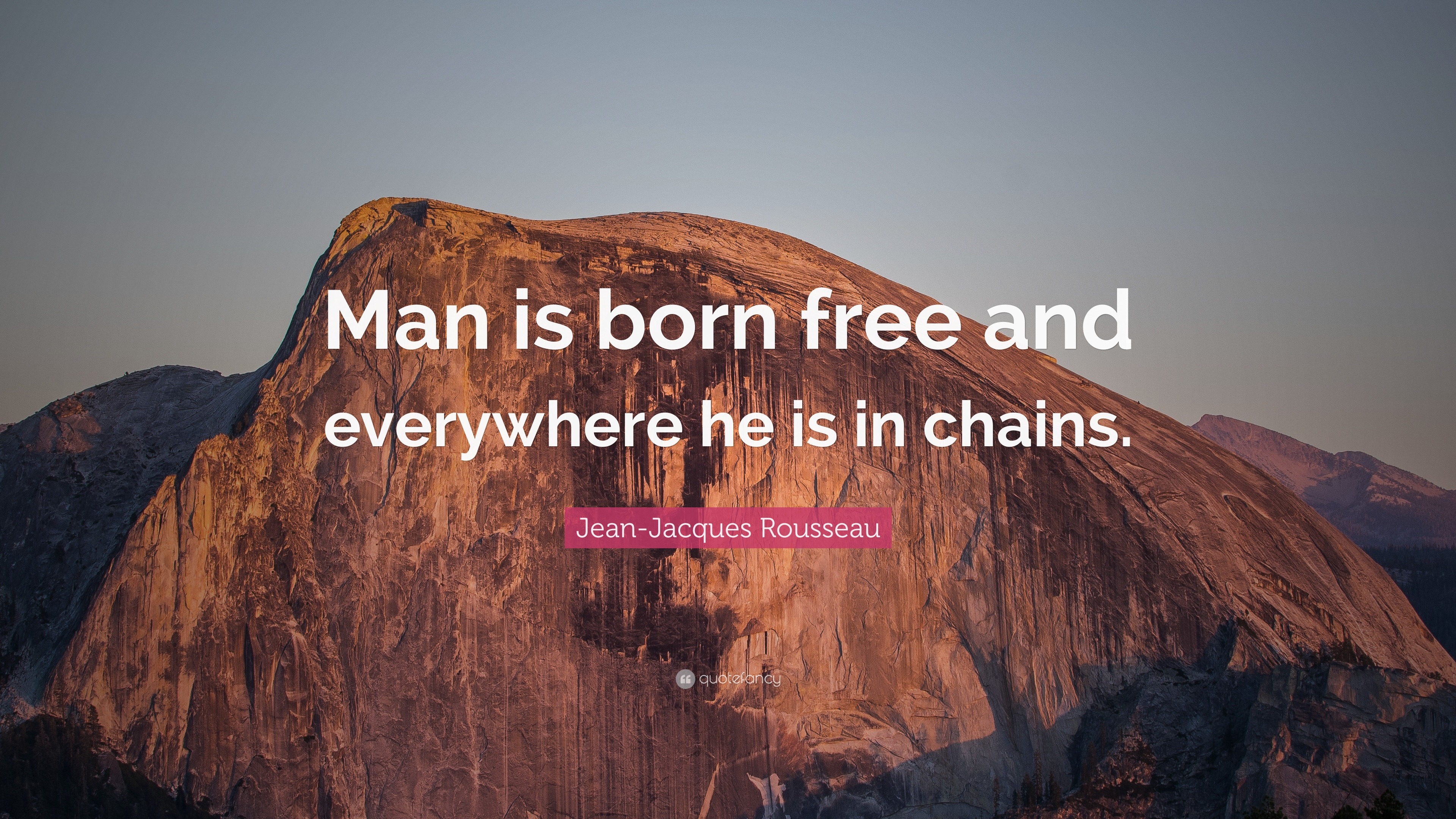
JeanJacques Rousseau Quote “Man is born free and everywhere he is in chains.”
philosophy 28. June 2018 0 Harald Sack Jean Jean-Jaques Rousseau (1712 - 1778) Jean-Jacques Rousseau was born on June 28, 1712. The writer, philosopher, composer, and pioneer of the Age of Enlightenment had a great influence in educational and political matters throughout the French Revolution and beyond.
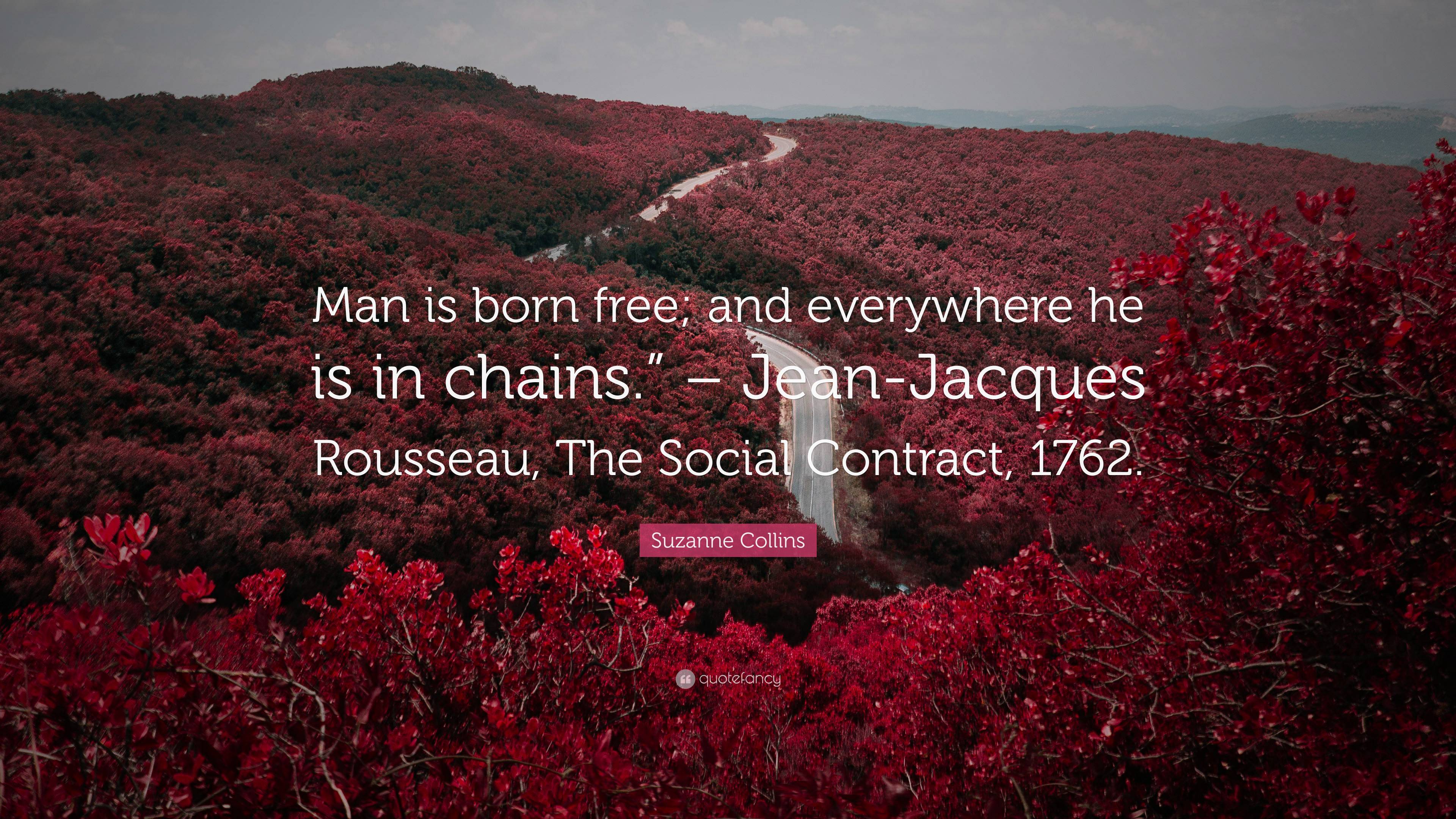
Suzanne Collins Quote “Man is born free; and everywhere he is in chains.” JeanJacques
The children, released from the obedience they owed to the father, and the father, released from the care he owed his children, return equally to independence. If they remain united, they continue so no longer naturally, but voluntarily; and the family itself is then maintained only by convention. {3} This common liberty results from the nature.
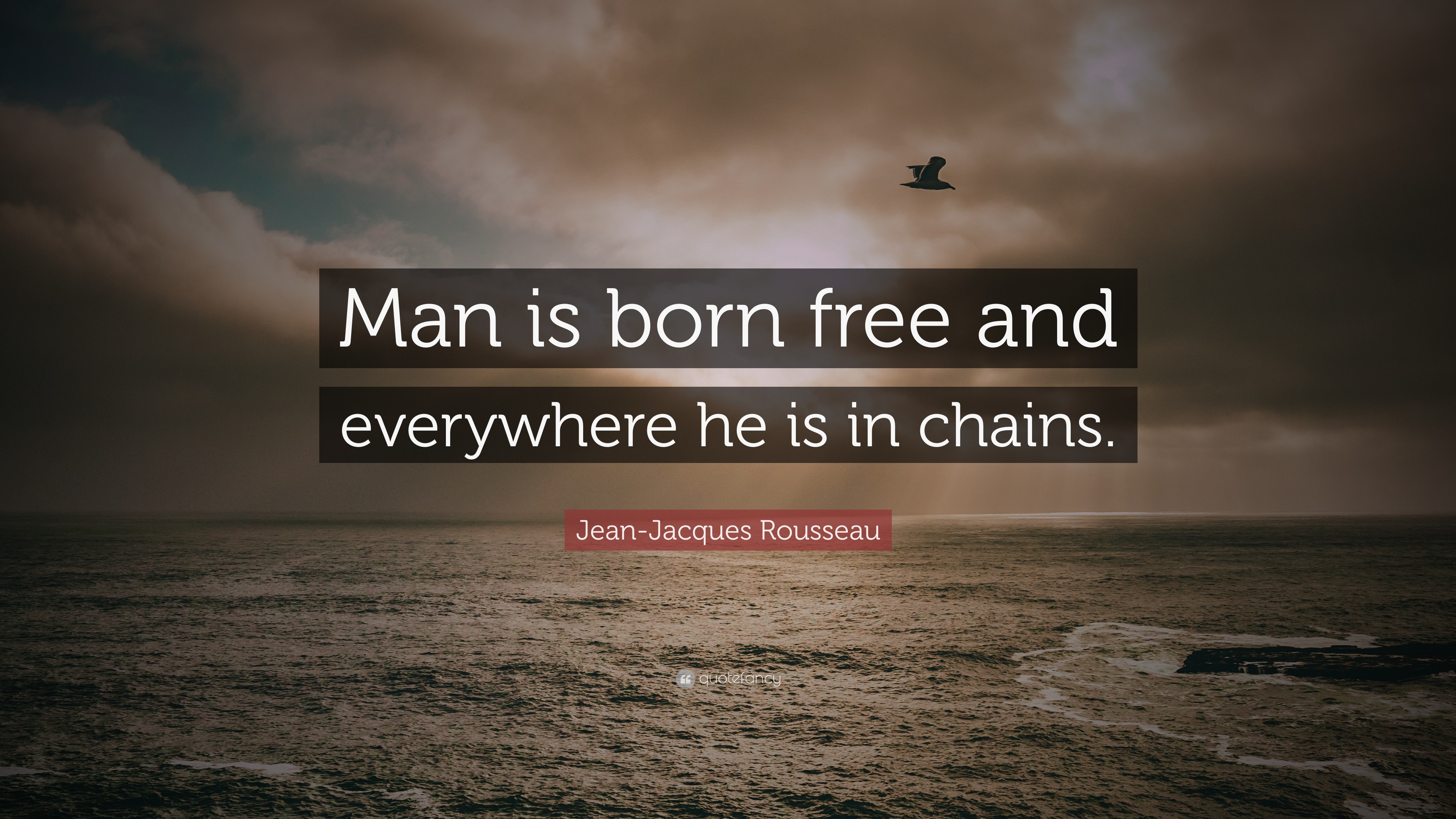
JeanJacques Rousseau Quote “Man is born free and everywhere he is in chains.”
MAN is born free; and everywhere he is in chains. One thinks himself the master of others, and still remains a greater slave than they. How did this change come about? I do not know.. Nothing can be more certain than that every man born in slavery is born for slavery. Slaves lose everything in their chains, even the.
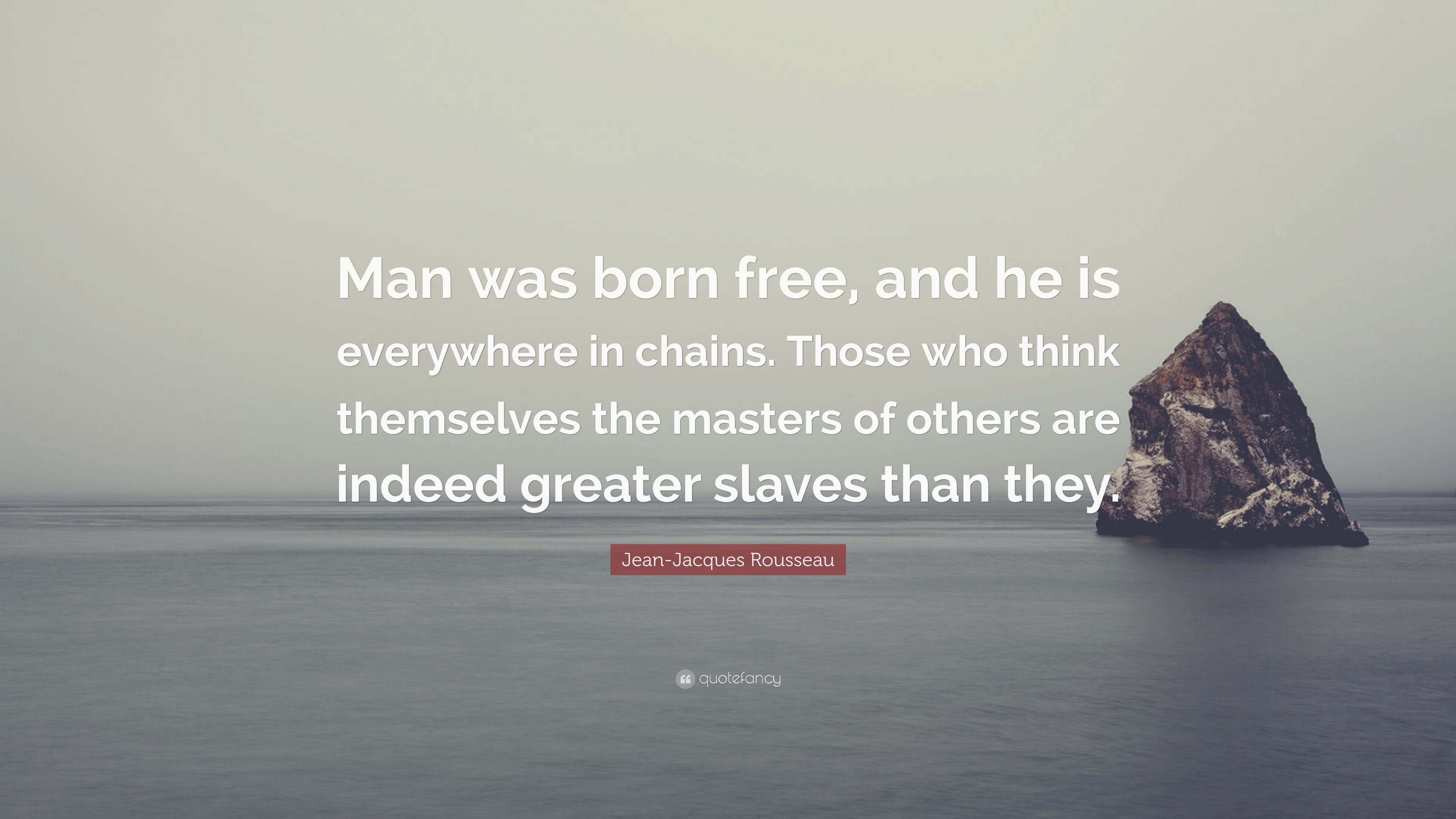
JeanJacques Rousseau Quote “Man was born free, and he is everywhere in chains. Those who think
There are a great many people whose idea of Rousseau consists solely of the first words of the opening chapter of the Social Contract, "Man is born free, and everywhere he is in chains." But, they tell you, man is not born free, even if he is everywhere in chains. Thus at the very outset we are faced with the great difficulty in appreciating.
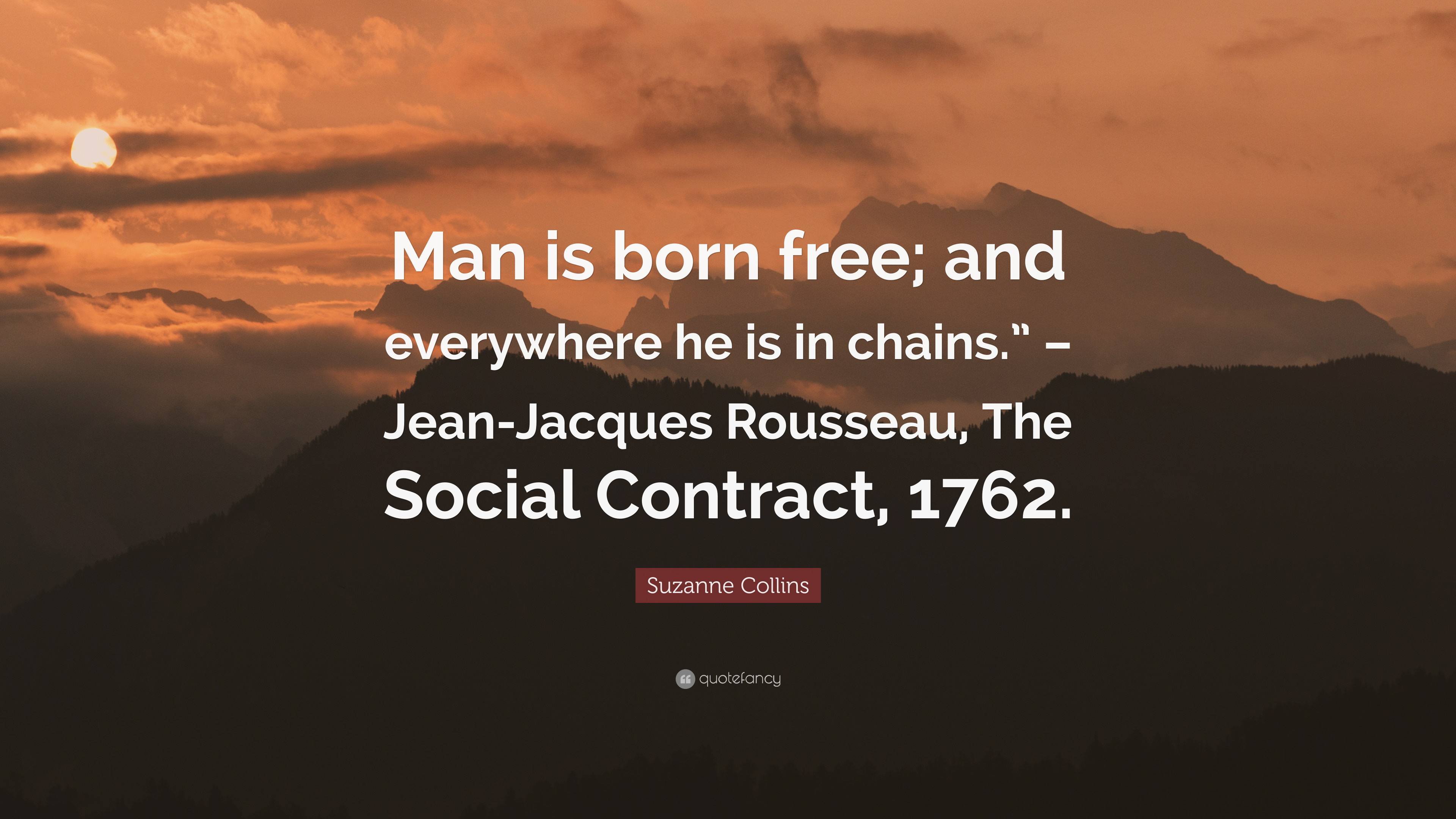
Suzanne Collins Quote “Man is born free; and everywhere he is in chains.” JeanJacques
Rousseau's famous quote, "man is born free, but he is everywhere in chains,' argues that all men are born as free individuals, but it comes with autonomy and being in control of oneself. This is the opening line for Rousseau's Social Contract Theory and is often quoted in the French revolution.
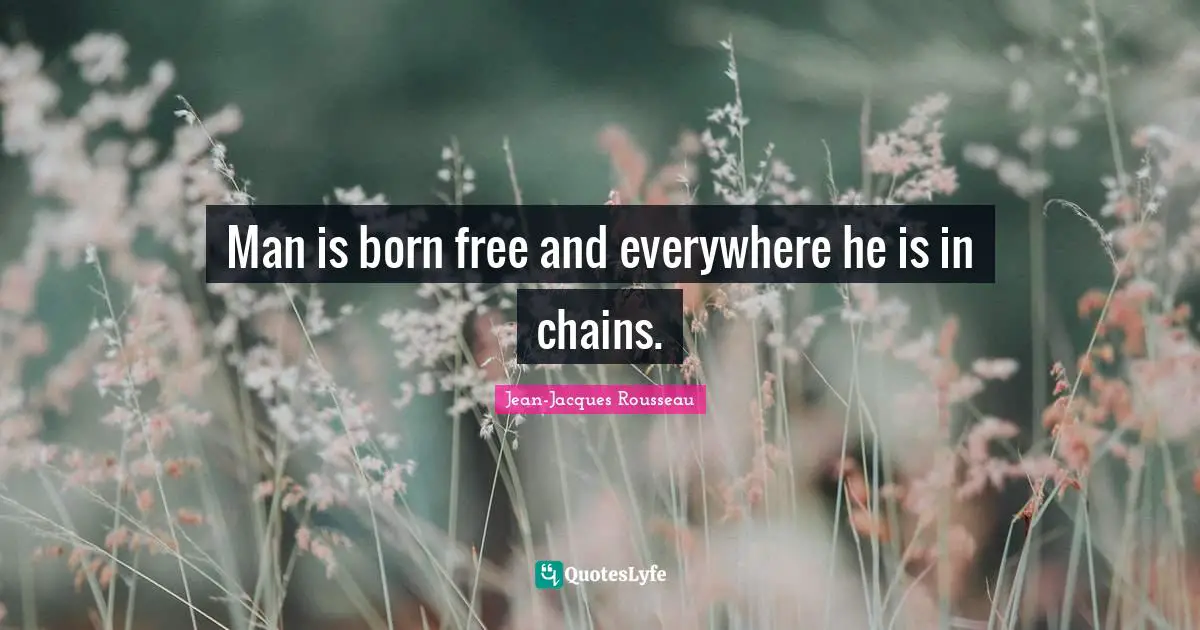
Man is born free and everywhere he is in chains.... Quote by JeanJacques Rousseau QuotesLyfe
M an is born free, and everywhere he is in chains. Say what you like about Jean-Jacques Rousseau, but he knew how to write a line. The Social Contract, the political treatise which.
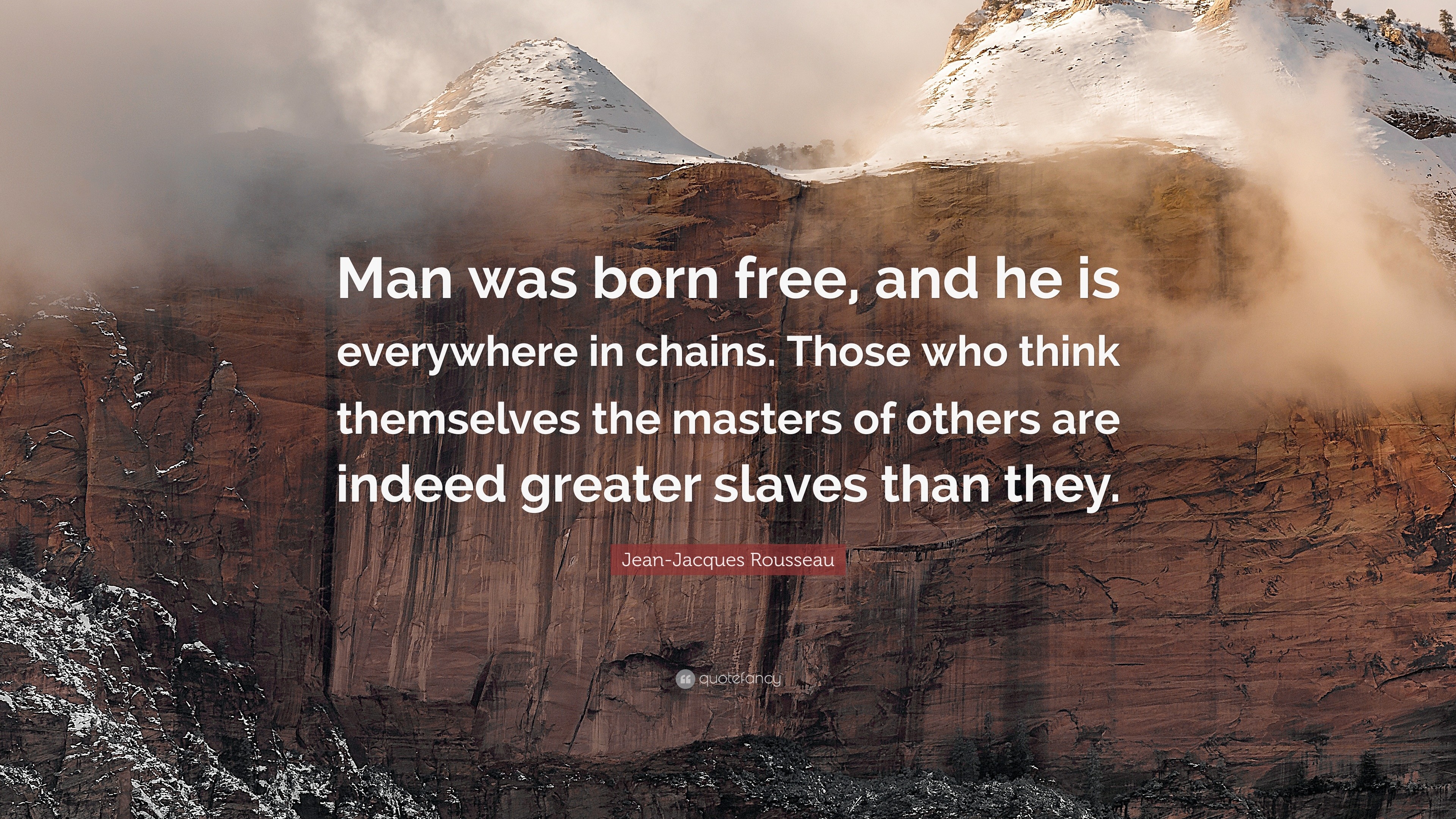
JeanJacques Rousseau Quote “Man was born free, and he is everywhere in chains. Those who think
Olen Bruce, Ph.D. | Certified Educator Share Cite Rousseau, who opened The Social Contract with this line, meant that humans are born free and that in their natural state, they have a great.

Man is born free and everywhere he is in chains. IdleHearts
The Social Contract: summary. The Social Contract begins with the most famous words in the whole book: 'man is born free, yet everywhere he is in chains'. Rousseau is interested in how modern society takes us away from this freedom we're born with. He asserts that there exists a 'social contract' between the individual and the state.

JeanJacques Rousseau “Man is born free; and everywhere he...”
Man is born free; and everywhere he is in chains of property. Property therefore gave rise to a society where each was at war with the other, a war masked by the pretense of 'civility'. So often seen as the natural state of man, for Rousseau this war of all against all was a corruption of natural man, a corruption inevitably brought about.
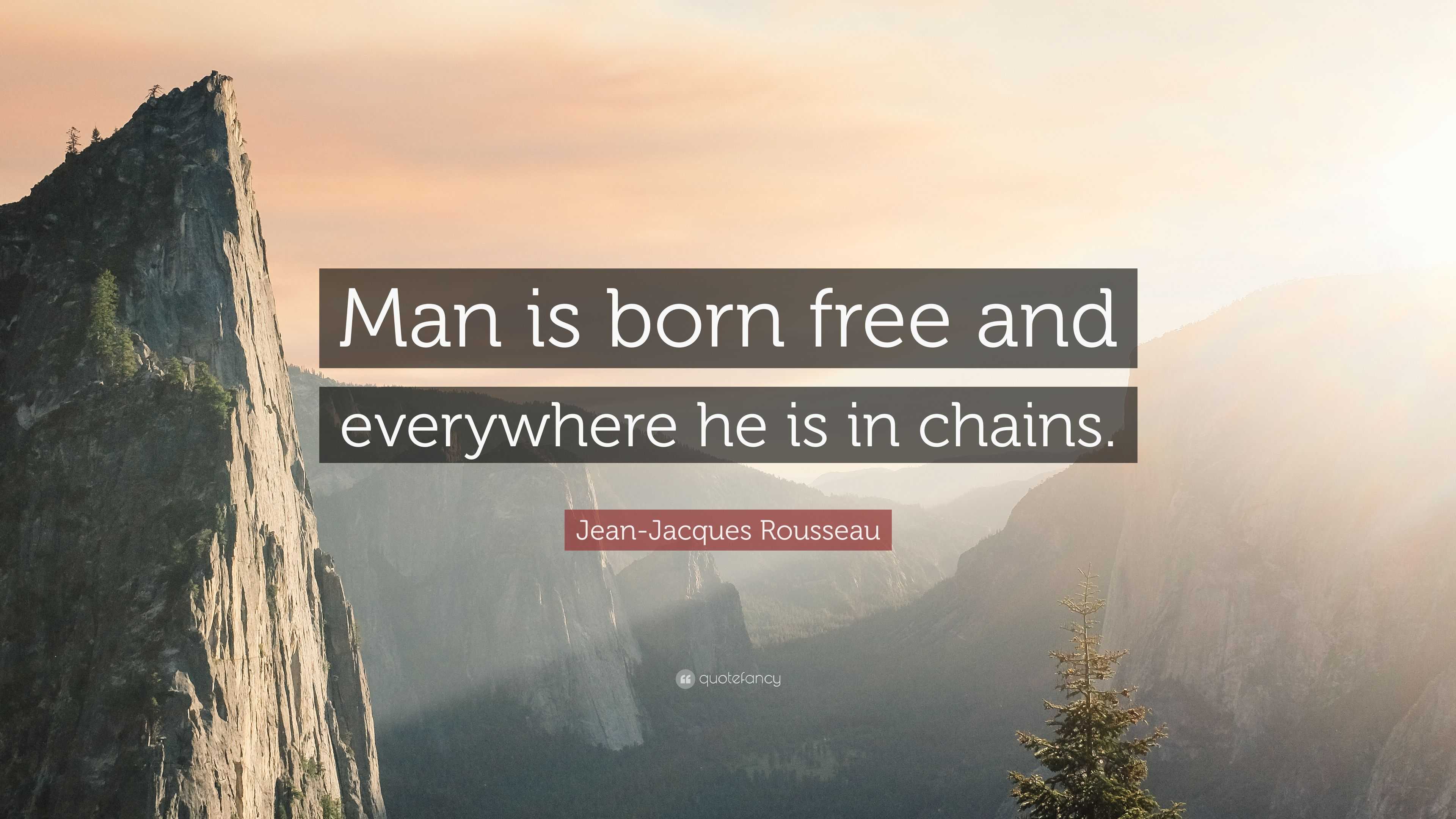
JeanJacques Rousseau Quote “Man is born free and everywhere he is in chains.”
Man is born free; and everywhere he is in chains. One thinks himself the master of others, and still remains a greater slave than they. How did this change come about? I do not know. What can make it legitimate? That question I think I can answer.

JeanJacques Rousseau Quote “Man is born free and everywhere he is in chains.”
Jean-Jacques Rousseau was one of the most influential thinkers during the Enlightenment in eighteenth century Europe. His first major philosophical work, A Discourse on the Sciences and Arts, was the winning response to an essay contest conducted by the Academy of Dijon in 1750.
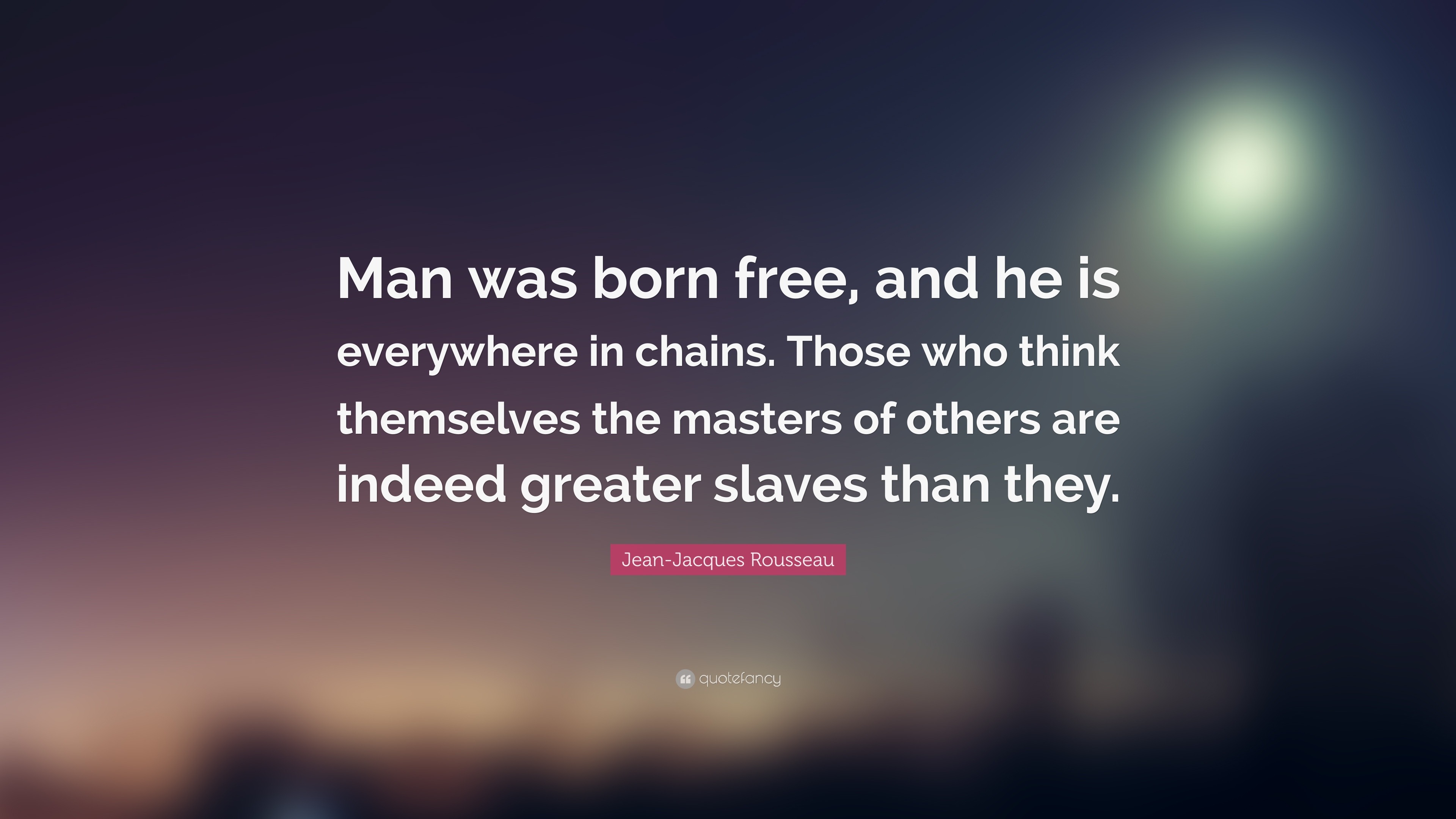
JeanJacques Rousseau Quote “Man was born free, and he is everywhere in chains. Those who think
"Man was born free, and he is everywhere in chains." [1] Thus begins Jean-Jacques Rousseau's classic political treatise, The Social Contract, the aim of which is to offer a solution to the puzzle so memorably stated in its opening line.
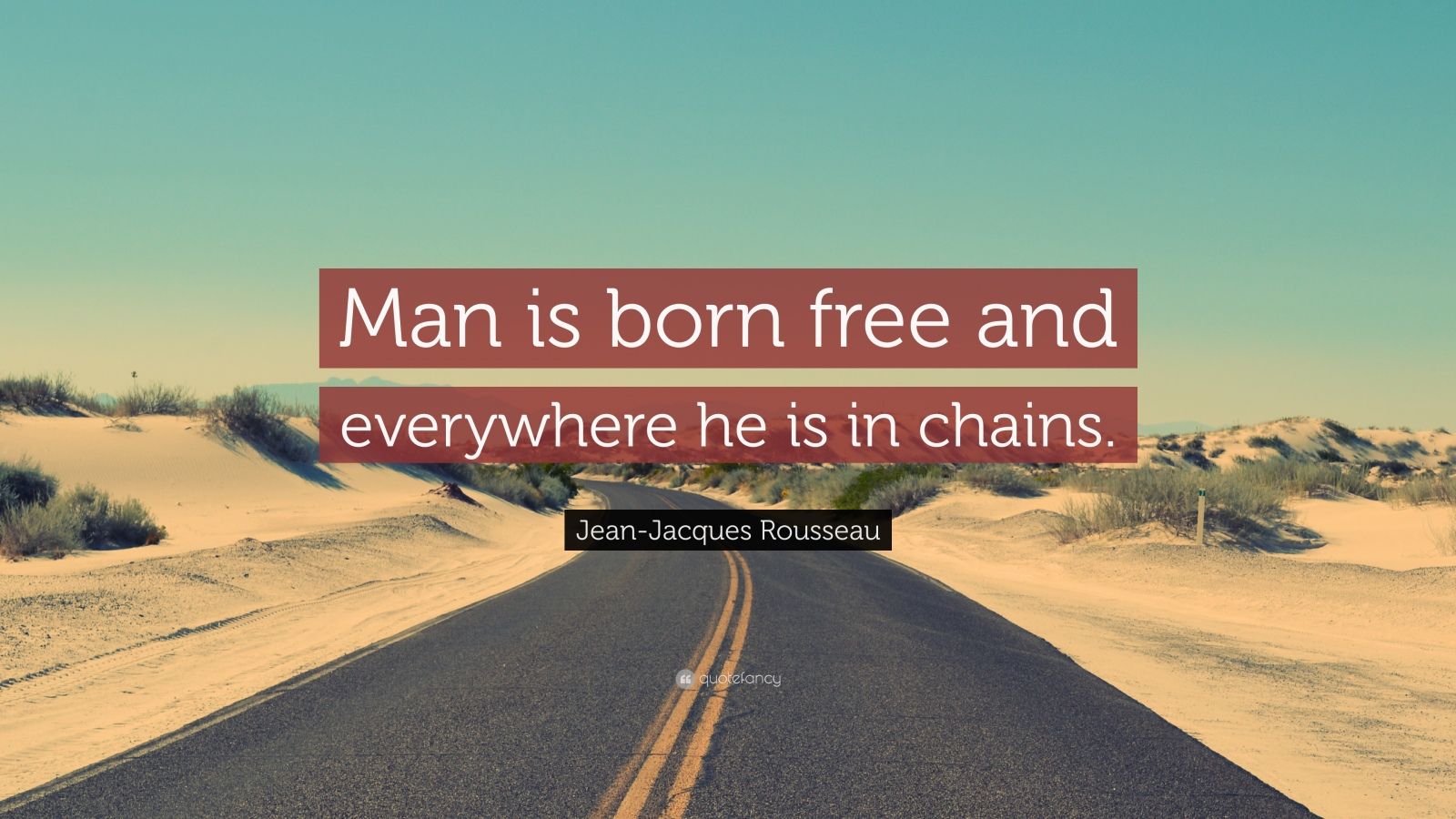
JeanJacques Rousseau Quote “Man is born free and everywhere he is in chains.” (12 wallpapers
Man is born free; and everywhere he is in chains. Jean-Jacques Rousseau ( June 28, 1712 - July 2, 1778) was a major French-speaking Genevan philosopher of Enlightenment whose political ideas influenced the French Revolution, the development of socialist theory, and the growth of nationalism. See also: Discourse on the Arts and Sciences (1750)
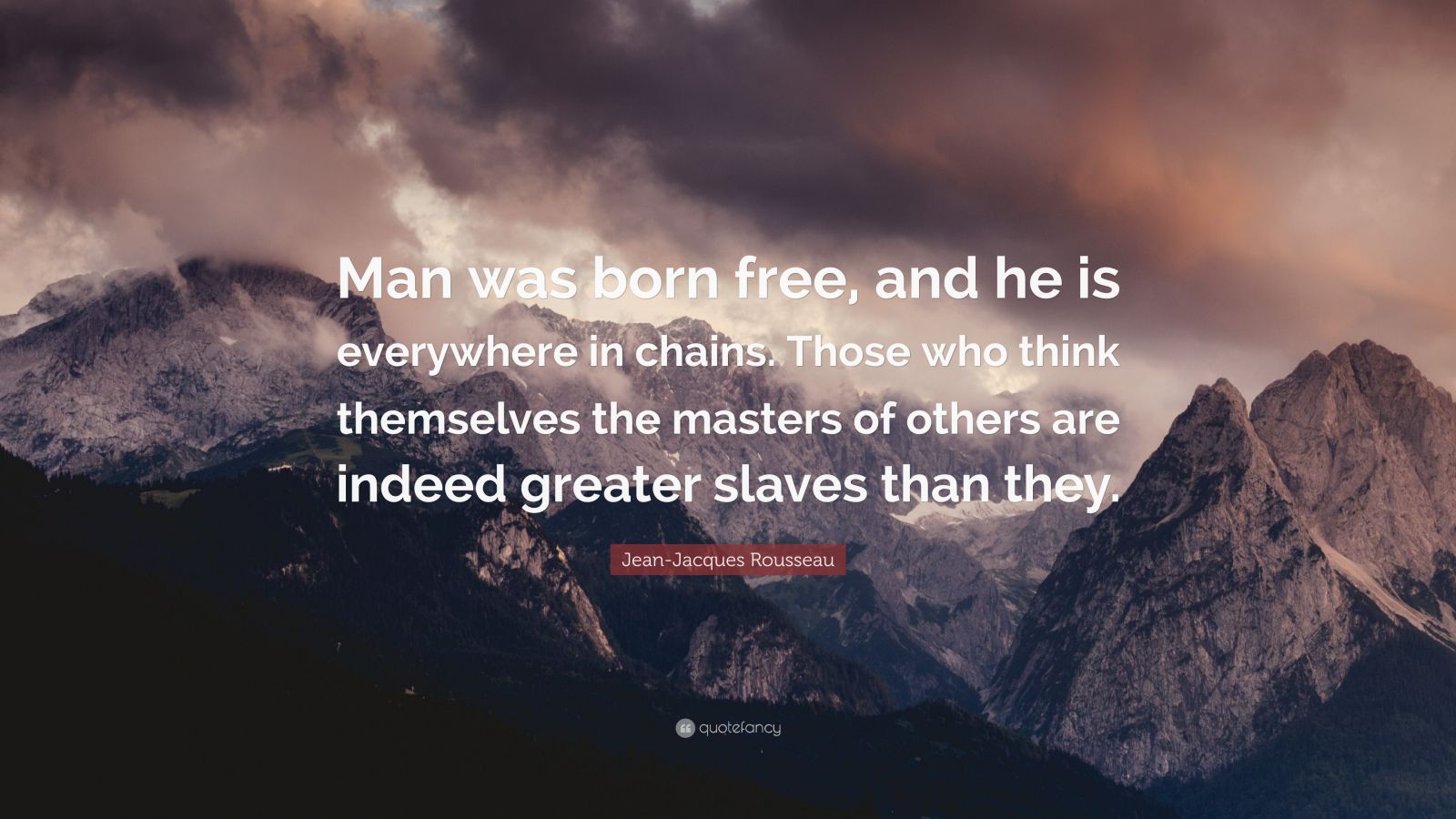
JeanJacques Rousseau Quote “Man was born free, and he is everywhere in chains. Those who think
With the famous phrase, "man is born free, but he is everywhere in chains," Rousseau asserts that modern states repress the physical freedom that is our birthright, and do nothing to secure the civil freedom for the sake of which we enter into civil society.

Man was born free, and he is everywhere in chains. JeanJacques Rousseau BrainyQuote
"Man is born free but everywhere is in chains." This quote made the Geneva-born political philosopher, Jean-Jacques Rousseau, world famous. Rousseau was born to a family of French Protestant refugees on June 28, 1712. Geneva, which offered shelter to thousands of persecuted Huguenots from the 16th Century onwards, left a deep impression on him.

"Man is born free, and everywhere he is in chains Jean Jacques Rousseau" Poster by metin1331
Man was born free, and everywhere he is in chains. Du Contrat social (1762) ch. 1 The English people believes itself to be free; it is gravely mistaken; it is free only during the election of Members of Parliament; as soon as the Members are elected, the people is enslaved; it is nothing. Du Contrat social (1762)